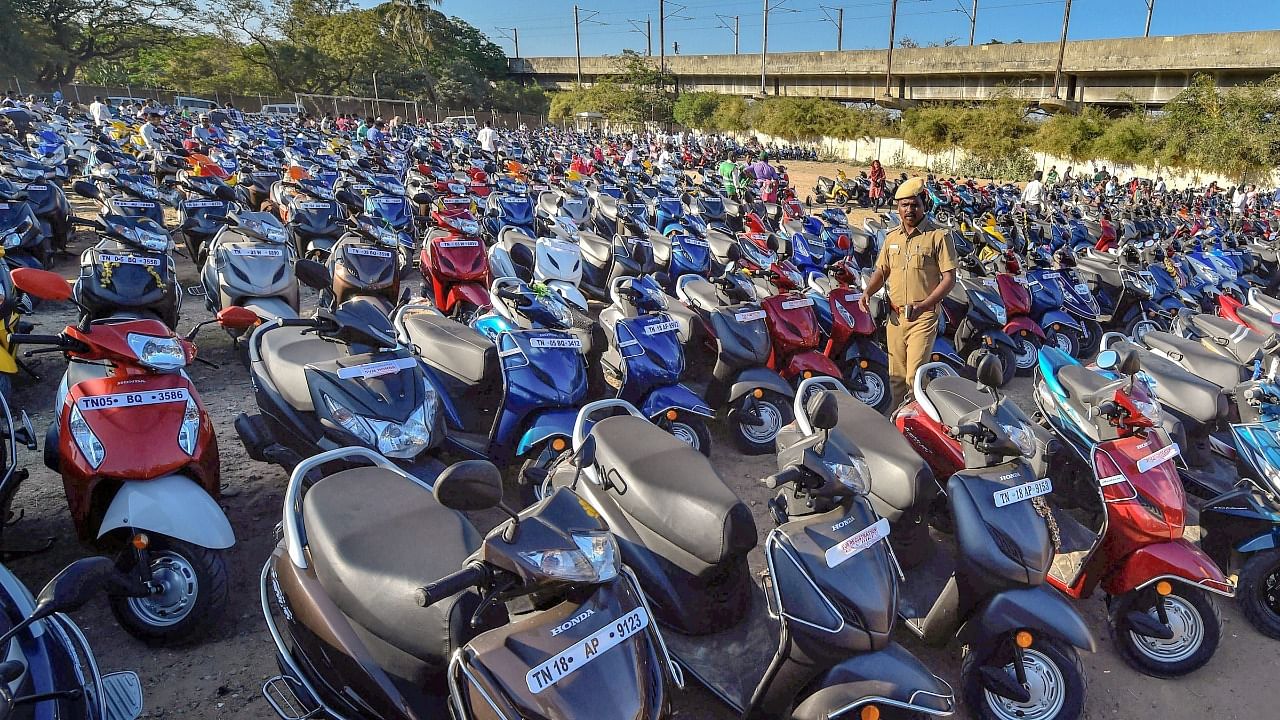
The domestic two-wheeler sales witnessed 21 per cent year-on-year decline in January, even as the segment registered a 14 per cent sequential growth in domestic wholesale volumes, according to credit ratings agency ICRA.
The numbers are based on the data released by six major original equipment manufacturers (OEMs), ICRA said in a statement on Wednesday.
The low year-on-year sales volume in January, highlights the adverse impact of price hikes, fuel inflation, and Omicron-related concerns on consumer sentiments, said Rohan Kanwar Gupta, Vice President and Sector Head - Corporate Ratings, ICRA Limited.
Noting that the supply chain issues in production of premium motorcycles also persisted, he said, the reinstatement of localised restrictions, to contain the third wave of pandemic, constrained retail sales and led to a 11 per cent sequential (14 per cent year-on-year) fall in volumes, to 10.2 lakh units.
Nonetheless, the industry is cautiously optimistic about recovery in coming months, with easing supply chain constraints and spillover impact from positive announcements on infrastructure spends and agri-initiatives in the Union Budget, Gupta stated.
In contrast to the domestic sales environment, steady demand from African and Latin America (LATAM) regions continued to be the silver lining for the industry, with exports clocking steady volumes of over 3.5 lakh units in January 2022, registering a 3 per cent sequential growth, according to ICRA.
Gupta also noted that the domestic electric two-wheeler sales continued to have a dream-run in the April-January period of FY2022, posting a 5 times year-on-year growth at 1.49 lakh unit sales.
In January 2022, the high-speed e-two-wheelers saw a 11 per cent month-on-month growth with 27,563 unit sales (highest monthly sales this year), Gupta said.
The proposed formulation of a battery swapping policy and interoperability standards, announced in the budget 2022-23, could be game-changers for faster EV adoption in the medium-term, Gupta added.
Watch the latest DH Videos here: